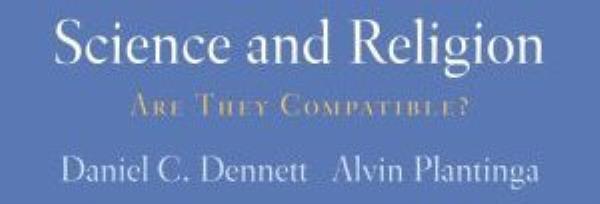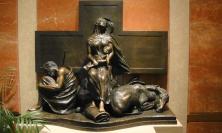The basic premise of this book must have seemed a hugely promising one: put together in a debating chamber outspoken champions of theism and atheism, and record their initial speeches and their responses to one another. The outcome might reasonably be expected to be highly readable, fresh, engaging and productive. Alas, only the first of these qualities can truly be attributed to the book now under review (one can read through its 77 pages easily in an hour or so).
It appears that the merest mention of ‘science and religion’ in an American context immediately sets around any encounter a number of parameters and expectations which polarise the discussion and, effectively, stick it firmly in the mire. In the present instance, within a couple of pages of Plantinga’s opening gambit the goalposts are radically switched from ‘Science and Religion’ (terms which, as Plantinga points out, in and of themselves immediately beg many questions, and on which the present discussion might perhaps more productively have focused) to ‘contemporary evolutionary theory and theistic belief’ (p. 2). Although the book’s structure offers three chapters to each author alternately, the net result is essentially three iterations of the following.
Plantinga: Evolutionary theory is quite compatible with theistic belief: however, it is wrongly assumed that belief in evolution necessitates a belief in naturalism (the doctrine that only matter exists), which is by definition antitheistic. In fact, an argument can be made that evolution is actually incompatible with naturalism, since the latter makes assumptions about the evolution of human cognitive abilities which are a priori improbable.
Dennett: Evolutionary theory is indeed compatible with theistic belief, as it is with many other beliefs: it’s just that theistic belief is unnecessary, and ultimately rather silly. Just because Plantinga finds the evolution of human cognitive capacity incredible, it doesn’t mean that it is.
If this précis suggests two people basically arguing past each other whilst playing to the gallery, I fear that this is indeed the impression ultimately left by this exchange. I’m sure the black-and-white argumentation and caustic attempts at wit essayed by both parties were all great fun if you happened to be present at their encounter, but I doubt if anyone on that occasion had their fundamental beliefs altered by one iota, and still less can I imagine any such change occurring as a result of anyone reading this rather dreary and superficial book.
I hope that, before long, this debate will seem like a relic from a bygone age. Many theists will already feel that Plantinga’s arguments read uncomfortably, placing as they do considerable credence in the ‘intelligent design’ ideas of Michael Behe. Similarly, I dare say that many atheists will wince with embarrassment at the scoffing tone of Dennett. There is a lot of very worthwhile material out there in which scientists and theologians engage meaningfully with one another, enriching our understandings thereby: I would urge those interested to explore the forward-looking work of Polkinghorne, Davies, van Huyssteen and others, rather than revisit sterile debates such as the one presented here.
What is perhaps most sadly lacking from this encounter is any historical awareness, any realisation that the terms of engagement being adhered to here really belong to the nineteenth or early twentieth century. Plantinga hints at this: ‘Belief in God is seldom accepted on the basis of the teleological argument, or indeed any argument or propositional evidence’, he writes (p. 9). Exactly – so why play along with the fantasy that it does (or, still more insidiously, should)?
The reviewer, Rev Dr Michael Fuller of the Theological Institute of the Scottish Episcopal Church, is the author of Atoms and Icons (Mowbray, 1995).
![]() Find this book on the Oxford University Press web site
Find this book on the Oxford University Press web site
![]() Shop for this book on Amazon, giving a 5% cut to the Jesuit Refugee Service, UK
Shop for this book on Amazon, giving a 5% cut to the Jesuit Refugee Service, UK
Read Dr Michael Fuller’s series on ‘Science and Theology’ on Thinking Faith:
![]() Science and Theology: An Introduction
Science and Theology: An Introduction
![]() Science and Theology: Flashpoints
Science and Theology: Flashpoints
![]() Science and Theology: Consonances
Science and Theology: Consonances






